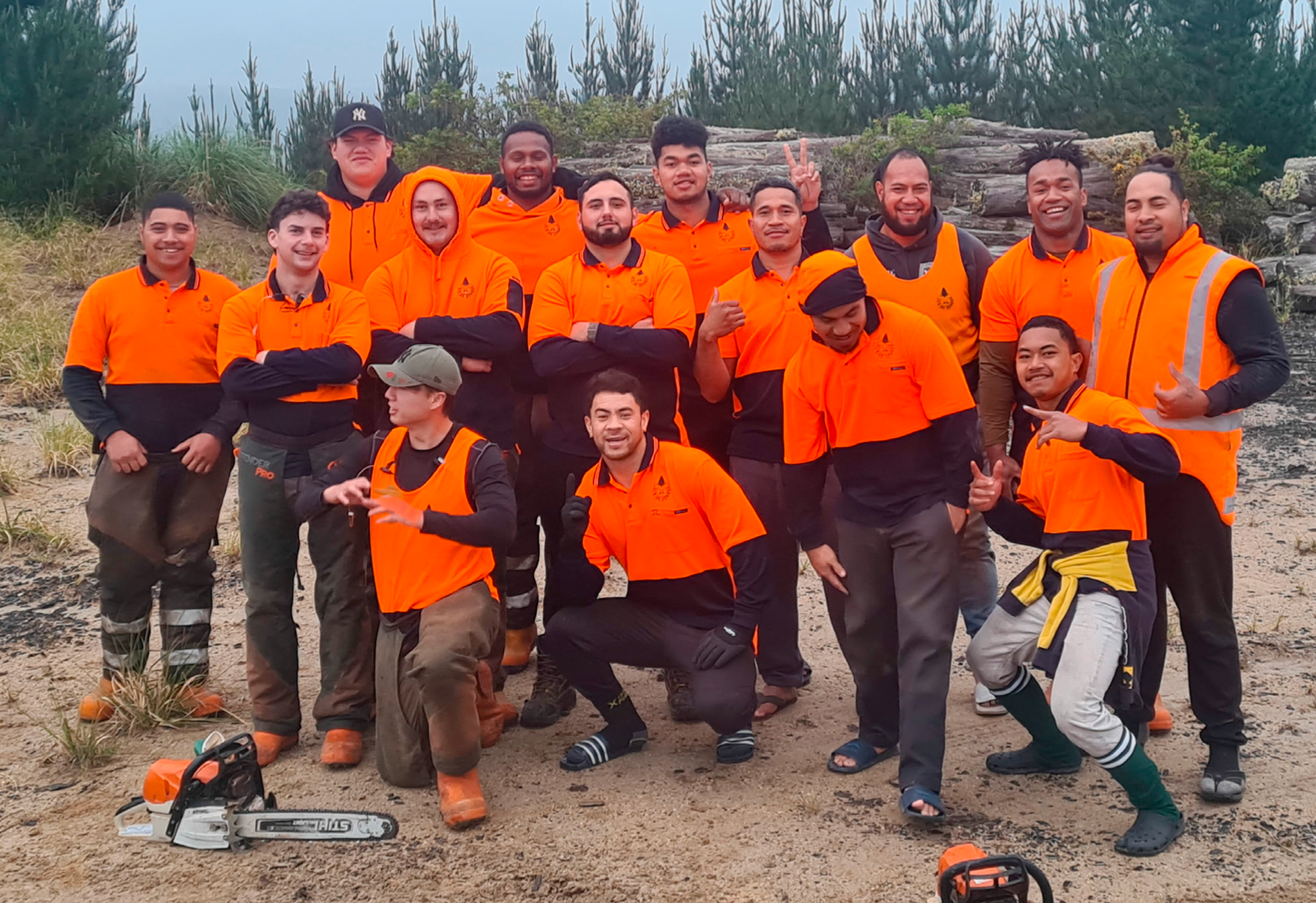Building a skilled and sustainable Forestry workforce
Operationalising digital credentials to unlock capability and drive career aspiration
The wider Forestry sector employs approximately 40,000 people in New Zealand and generates $6.9 billion in revenue. Direct economic benefits are realised through environmental, social and community contributions.
JNCTN was selected by the Forest and Wood Processing Workforce Council to take part in the Job Enrichment Through Mentoring project. The project stemmed from the Forestry and Wood Processing Workforce Action Plan 2020-2024, managed by Te Uru Rākau – New Zealand Forest Service – at the Ministry of Primary Industries.
The prime focus was on Silvicultural crews who plant trees and control their growth to ensure a healthy and diverse forest and profitable harvest. The work is physically demanding, and workers are traditionally employed on seasonal contracts. Silviculture crews were selected because they provide the best opportunities for improvement through one-to-one contact between a mentor and a trainee. Mentoring has been proven to be an effective way to impart knowledge, skill and relevant credentials to trainees.
Seasonal workforces such as Silviculture are a common feature of the New Zealand Labour Market, with workers often moving between Forestry, Fishing, Farming and acquiring but not recording their transferable skills.
The project included developing a training package for mentors, including selecting and appointing, principles of mentoring, building trust and core skills. Mentoring is seen as a way to build crew stability and performance and early engagement with trainees can drive career aspiration within Silviculture.
Key objectives:
- Improve the status and general capability of new entrant (silviculture) workers through mentoring
- Build crew stability and performance which will be enhanced by early engagement with new employees
- Create and recognise a cohort of mentors as a key influence in introductory training
- Achieve time-based recognition for knowledge achieved by new entrants, in addition to unit standards as these are completed.
At present there is no common credential management platform available, with an app, that puts the trainee at the centre of their learning and mentoring process.
The Question
Would using a digital platform and App assist with the capture of time-based recognition for knowledge achieved by trainees. The mentoring project tested whether using JNCTN would enable workers to build digital life-long learning records which can be shared with employers across various industries.
The Answer
The JNCTN platform proved to be successful when used for recording and assigning credentials attained by trainees and proved to be an integral component for practical mentoring activities. The platform is flexible and has the ability to award small or part credentials, as they are achieved, along with NZQA Unit Standards. Blocks of training can be combined to become constituent parts of associated standards or bespoke qualifications.
Participants in the pilot could see clear benefits from establishing common standards, agreed competency and capability standards and processes that would be enabled through the deployment of the JNCTN platform in the Silviculture sector. An added benefit of using the JNCTN platform is the creation of shareable life-long learning records for Forestry workers.
